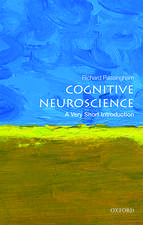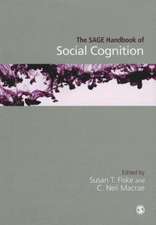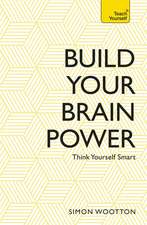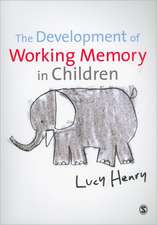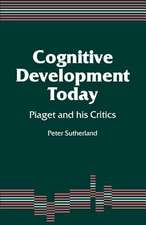Stress Management: From Basic Science to Better Practice
Autor Wolfgang Lindenen Limba Engleză Paperback – 21 noi 2004
In Stress Management, author and renowned stress researcher Wolfgang Linden reviews the literature on intervention outcomes, noting weaknesses that include an overemphasis on individual rather than societal responsibility for stress and coping and disregard of the emerging field of positive psychology. The author concludes the text with a proposed distinction between psychotherapy and stress management, and he proposes the need for three distinguishable subtypes of stress management programs-a systematic-preventative approach; a broad-based stress vaccination and prevention type of protocol; and a reactive, problem-solving type of stress reduction intervention.
Key Features:
- Begins with a firm groundwork in defining stress and examining conceptual models of stress to set the stage for rational, science-based thinking on how to manage it
- Introduces a unique 3-step process model for stress management
- Considers both physiological and sociocultural influences on stress and health
- Offers an objective analysis of existing literature and includes extensive personal, clinical experiences of the author to make the science of stress come alive for the reader
- Includes coverage of positive psychology and how the creation of social support and positive emotional states can ease experiences with stress.
Stress Management is an excellent textbook for advanced undergraduate and graduate courses, such as stress management, stress and coping, stress and health, and stress and wellness, in the fields of psychology and health. The book is also a valuable resource for researchers and clinicians within the behavioural sciences interested in understanding and alleviating stress.
Preț: 827.05 lei
Preț vechi: 1132.95 lei
-27% Nou
Puncte Express: 1241
Preț estimativ în valută:
158.26€ • 169.23$ • 131.95£
158.26€ • 169.23$ • 131.95£
Carte tipărită la comandă
Livrare economică 18 aprilie-02 mai
Preluare comenzi: 021 569.72.76
Specificații
ISBN-13: 9780761929468
ISBN-10: 0761929460
Pagini: 232
Dimensiuni: 152 x 229 x 12 mm
Greutate: 0.32 kg
Ediția:First Edition
Editura: SAGE Publications
Colecția Sage Publications, Inc
Locul publicării:Thousand Oaks, United States
ISBN-10: 0761929460
Pagini: 232
Dimensiuni: 152 x 229 x 12 mm
Greutate: 0.32 kg
Ediția:First Edition
Editura: SAGE Publications
Colecția Sage Publications, Inc
Locul publicării:Thousand Oaks, United States
Recenzii
"The author is correct in saying that the stress management field is a ‘soft’ one, lacking a strong theoretical foundation, and therefore lacking good studies of efficacy and long term outcome. Certainly any publication that would improve on this situation is to be welcomed. . . . Strengths are the systematic approach to the topic. The attempt to ground scientifically the issue of stress management will appeal greatly to the more discerning student of clinical psychology and applied health psychology. It will provide a sufficiently academic approach to the topic that it will find acceptance in courses on the topic."
"There seems to be little consensus as to what stress is, let alone how to best manage it. Dr. Linden makes a good case for how his approach can shed some light onto this important topic. For me, the greatest strength of the book is that a respected scientist such as Dr. Linden is undertaking this project. He has an impressive publication record that shows a professional lifetime of dedication to work that relates favorably to the subject matter of the book."
"Overall, the book has some positive merits, most notably its attempt to apply an integrative theory to practice….The primary strength is the use of a process model to address stress management….I would consider this text in a graduate course in stress management."
"The author brings a needed perspective-a social, cultural and economic stress-to the literature and to treatment, too."
"Professor Wolfgang Linden has undertaken the formidable task of reviewing and integrating a vast and fragmented body of literature on stress management. He has successfully created a very readable, comprehensive, and integrative account of this diverse field. This book brings together many perspectives on stress management and Professor Linden skillfully constructs a valuable and more integrated theory of stress management. The result is an informative, thought provoking, scholarly book for students, researchers, and practitioners in the field of stress management. It is bound to stimulate a more sophisticated approach to the study and practice of stress management."
"There seems to be little consensus as to what stress is, let alone how to best manage it. Dr. Linden makes a good case for how his approach can shed some light onto this important topic. For me, the greatest strength of the book is that a respected scientist such as Dr. Linden is undertaking this project. He has an impressive publication record that shows a professional lifetime of dedication to work that relates favorably to the subject matter of the book."
"Overall, the book has some positive merits, most notably its attempt to apply an integrative theory to practice….The primary strength is the use of a process model to address stress management….I would consider this text in a graduate course in stress management."
"The author brings a needed perspective-a social, cultural and economic stress-to the literature and to treatment, too."
"Professor Wolfgang Linden has undertaken the formidable task of reviewing and integrating a vast and fragmented body of literature on stress management. He has successfully created a very readable, comprehensive, and integrative account of this diverse field. This book brings together many perspectives on stress management and Professor Linden skillfully constructs a valuable and more integrated theory of stress management. The result is an informative, thought provoking, scholarly book for students, researchers, and practitioners in the field of stress management. It is bound to stimulate a more sophisticated approach to the study and practice of stress management."
Cuprins
Preface
1. Stress: Definitions and Pathways to Disease
Scientific and popular definitions
How can stress be measured?
A history of models for stress and health
Understanding stress responsivity
"Take-Home Messages" that are pertinent to stress management
2. Elements of the Stress Process and Implications for Stress Management
A model of the stress process, its major components and moderating variables
Stressors and stressor properties of relevance for stress management
Predispositions
Coping skills: Cognitions and behaviors
Buffers
Physiological stress response: Recovery or exhaustion
Implications of basic stress research for intervention protocols
3. Descriptions, Rationales, and Outcomes of Stress Management Interventions
Descriptions
Rationales and outcomes
Review of the effects of specific techniques, rationales, and outcomes
Stress management effects for specific populations
Stress management effects on specific endpoints
Summary of the effects of stress management
4. Now What? A Summary, Reflections, and Recommendations
Major conclusions
Defining stress management and questioning rationales
What about the needed, shared definition for stress management?
Reflections on communication
Effective ingredients and delivery modes for stress management
Action plan
References
About the Author
Author Index
Subject Index
1. Stress: Definitions and Pathways to Disease
Scientific and popular definitions
How can stress be measured?
A history of models for stress and health
Understanding stress responsivity
"Take-Home Messages" that are pertinent to stress management
2. Elements of the Stress Process and Implications for Stress Management
A model of the stress process, its major components and moderating variables
Stressors and stressor properties of relevance for stress management
Predispositions
Coping skills: Cognitions and behaviors
Buffers
Physiological stress response: Recovery or exhaustion
Implications of basic stress research for intervention protocols
3. Descriptions, Rationales, and Outcomes of Stress Management Interventions
Descriptions
Rationales and outcomes
Review of the effects of specific techniques, rationales, and outcomes
Stress management effects for specific populations
Stress management effects on specific endpoints
Summary of the effects of stress management
4. Now What? A Summary, Reflections, and Recommendations
Major conclusions
Defining stress management and questioning rationales
What about the needed, shared definition for stress management?
Reflections on communication
Effective ingredients and delivery modes for stress management
Action plan
References
About the Author
Author Index
Subject Index
Descriere
Stress Management: From Basic Science to Better Practice examines documented pathways between stress and health and develops the scientific foundations for sound interventions. The book begins with a broad review of the term 'stress' and its importance for health. The text then provides a critical examination of the elements of the stress process, extracts supporting research for a rationale of stress management and describes various stress management techniques and their effectiveness.


